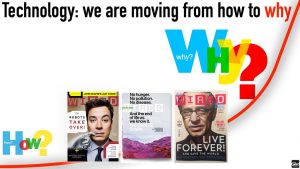
Do you prefer reading the news online or in a newspaper? How many times do you use the Internet? If you do you are becoming like the average reader. Digital reading has grown over the years in the work place, educational establishments, and home environments. According to Ferris Jabr, “in the U.S, e-books currently make up between 15 and 20 percent of all trade book sales” (“The Reading Brain in the Digital Age: The Science of Paper versus Screens”). Digital technology has changed the way we read in many ways, it is ubiquitous, convenient, and more generations are adapting to this style of reading. To cope with/ adjust to this schools should adapt to digital technology by teaching students how to use the web for educational purposes.
Digital reading is ubiquitous in our society (Murphy). Susanne Murphy, author of “Plagiarism is Dead; Long Live the Retweet: Unpacking an Identity Crisis in Digital Content” stated that we cannot get away from technology; it is now in our everyday lives. I agree with this because the ease of digital reading is beneficial compared to using printed books as a source of information. In my English class, we read articles online and can annotate while we read. Annotating and reading at the same time keeps you focused rather than scrolling and going to different websites. Journalist Nicholas Carr stated that he “has been spending a lot of time online, searching and surfing and sometimes adding to the great databases of the Internet” (“Is Google Making Us Stupid”). In other words, Carr uses the Internet for more than just researching. He uses it during his free time to find out new information and he does not get too distracted because he is learning more from the Internet. I have experienced using the Internet since I was very young, as well as since I was able to read at age five. I used the Internet when I was younger to go on educational websites that had games to help me with reading. Now that I am older, I use the Internet for research and can annotate online.
In addition to digital reading being ubiquitous, it is also a more convenient way to stay updated with new information or to read novels by various authors. Instead of having to bring ten books along with us, technology allows us to have all the texts we need at the tips of our fingers, using any type of smart device. Scott Karp, who writes a blog about online media, recently “confessed that he has stopped reading books altogether even though in college he was a lit major” (qtd. in Carr). His confession in Carr’s article is important because he is saying that books have gone extinct to him because the web is more convenient, and he wonders if his style of thinking has changed. Scott has become more capable of just going to the Internet to search for what he needs to read or find out. Like Carr, I frequently use the Internet to search for something that I do not know, rather than searching through stacks of books that have the information I need. There have been many technological advancements such as smartphones, iPads and Kindles made available to readers. These devices are very lightweight, which makes it more portable. In the society we live in today, we always see people grab their cellphones before leaving the house. Engineers and designers have worked hard to make reading printed or digital text as simple as possible (Jabr).
Digital reading has become common amongst all generations. For instance, “in a viral YouTube video from October 2011 a one-year-old sweeps her fingers across an iPad screen, shuffling groups of icons. In the following scenes, she appears to pinch, swipe and prod the pages of paper magazines as though they too were screens” (Jabr). This shows how one-year-olds are even adapting to digital reading because of all the new technology. As in the video, I had experienced my god-niece using an iPad for educational purposes and she knows how to use it without a lot of assistance. I see why the girl in the video did not understand how to read a regular book. However, Carr stated, “we read more today than back in the day, our brains aren’t custom to digital text” (“Is Google Making Us Stupid?”). I think Nicholas Carr is mistaken because he overlooks how older generations such as people’s grandparents and parents know how to use iPads to surf the web for anything they need. In fact, many older people use the Internet as much as the younger generations.
According to a survey by Ziming Liu ,at San Jose State University “…..concluded that people reading on screens take a lot of shortcuts – they spend more time browsing, scanning and hunting for keywords compared with people reading on paper” (Jabr). The web has hyperlinks for readers to go to another article just in case they want to read other articles pertaining to a term or phrase written in the article. Similarity, Ferris Jabr’s studies concluded that people read more slowly and less accurately on computers than printed text or book (“The Reading Brain in The Digital Age: The Science of Paper versus Screens”). I oppose this statement because the style of reading depends on the attitude the reader has towards the content of the written work you are reading. For example, if one is not interested in what the author is writing about, he/she might not be able to focus on the text whether it is on paper or online. If the reader is interested in what they are reading, they will focus despite if it is on printed text or the web.
However younger generations usually use the web during their leisure time through interacting on certain socially driven websites such as Twitter, Snapchat, Facebook, Instagram, etc. Older generations also utilize these social media platforms as well, with Facebook being the most popular website, which means they are adapting to the new technology around us too. Generations will keep adapting to new technology advancements. These adaptations should include our schools. For instance, Susanne Murphy stated, “it is time to move beyond the gotacha games of traditional citation protocols” (“Plagiarism is dead; long live the Retweet: Unpacking an Identity Crisis in Digital Content”). According to Murphy, it is time for the educational system to advance in their ways such as changing the way we cite information because there are a variety of ways to cite. One way that has to do with generations growing is being able to retweet someone’s tweet on Twitter. It shows that you are directly thinking the same thing.
As a result, the education system should adapt to the digital age by educating everyone about new technology once it is available to everyone. Changing the way professors teach could consist of using updated sources and new technology people are interested in. For example, in schools and colleges we should be able to download our books through the app store and see it on our phones just like a regular book. Alternatively, if schools would be losing money, students should be able to get an iPad for the years that they are in school to read their textbooks and do homework. Teachers should teach students to interact intelligently with online reading by teaching them programs such as hypothesis, also how to work twitter, and other social medias that would help them. In the future, I believe there will be a lot more advances in technology, perhaps even robots teaching our future generations. As a whole, we just have to educate ourselves on the new technology that we will be encountering soon and schools need to play a major role in helping with educating students.

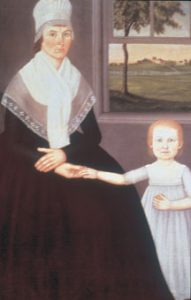
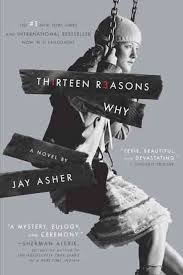
 Who am I am you might ask? My name is Bruce Stachitas, son of Bruce and Lisa, and I was born on November 15, 1995 at Fairfax County
Who am I am you might ask? My name is Bruce Stachitas, son of Bruce and Lisa, and I was born on November 15, 1995 at Fairfax County At a young age, my step mom would always try and make school a big aspect in my life. When learning to read and write, she would always have certain ways or tactics to help drive that out of me. She knew I didn’t like to read, so she would use that as a punishment. When I would get in trouble with my parents or anyone else, we had a stack of children books that talked about almost every scenario, either having to do with lying, cheating, or anything a child could do that was wrong. It was good way to learn right from wrong growing up, and knowing exactly what the best decisions that I could make in my life. She was always right on top of me with my school, as well. I would try and say “Yeah, I read this,” or “Yeah, I did that,” and she would always catch me lying. Which consequentially turned out making me have to read more, or write whatever I needed at the time. My step mom helped me become a stronger reader and writer. I’m still not the best, but I can definitely thank her for always holding me accountable.
At a young age, my step mom would always try and make school a big aspect in my life. When learning to read and write, she would always have certain ways or tactics to help drive that out of me. She knew I didn’t like to read, so she would use that as a punishment. When I would get in trouble with my parents or anyone else, we had a stack of children books that talked about almost every scenario, either having to do with lying, cheating, or anything a child could do that was wrong. It was good way to learn right from wrong growing up, and knowing exactly what the best decisions that I could make in my life. She was always right on top of me with my school, as well. I would try and say “Yeah, I read this,” or “Yeah, I did that,” and she would always catch me lying. Which consequentially turned out making me have to read more, or write whatever I needed at the time. My step mom helped me become a stronger reader and writer. I’m still not the best, but I can definitely thank her for always holding me accountable.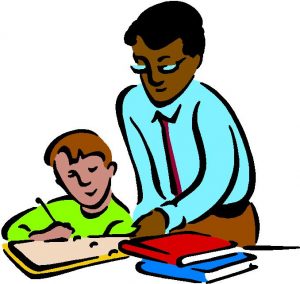 e of my lack of focus in class. I tended to mess around with my friends the entire day, too. I never knew all the material in each of my classes because sometimes I would be “out to lunch” during the class period and not even give it a second of my time. Math and history were a different story, though. I would always focus in and want to know what we were learning about in these classes. When it came to English and reading, I would just have a blank stare on my face and really have no clue with what was going on. That’s the reason I needed a tutor for those classes. I would always be behind my classmates.
e of my lack of focus in class. I tended to mess around with my friends the entire day, too. I never knew all the material in each of my classes because sometimes I would be “out to lunch” during the class period and not even give it a second of my time. Math and history were a different story, though. I would always focus in and want to know what we were learning about in these classes. When it came to English and reading, I would just have a blank stare on my face and really have no clue with what was going on. That’s the reason I needed a tutor for those classes. I would always be behind my classmates.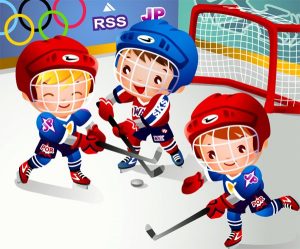 . My dad even has dreams of me playing at that level, and it’s tough to think about because it would just be the ultimate goal. Hockey has driven and motivated me through life, knowing every day, that I get to the rink and put on my gear is just music to my ears. It has helped with my literacy life because I would always want to read about hockey. I would always want to know the updated news about players in the NHL along with teams, coaches, general managers or anything that would have to do with anyone or anything in the hockey world.
. My dad even has dreams of me playing at that level, and it’s tough to think about because it would just be the ultimate goal. Hockey has driven and motivated me through life, knowing every day, that I get to the rink and put on my gear is just music to my ears. It has helped with my literacy life because I would always want to read about hockey. I would always want to know the updated news about players in the NHL along with teams, coaches, general managers or anything that would have to do with anyone or anything in the hockey world.